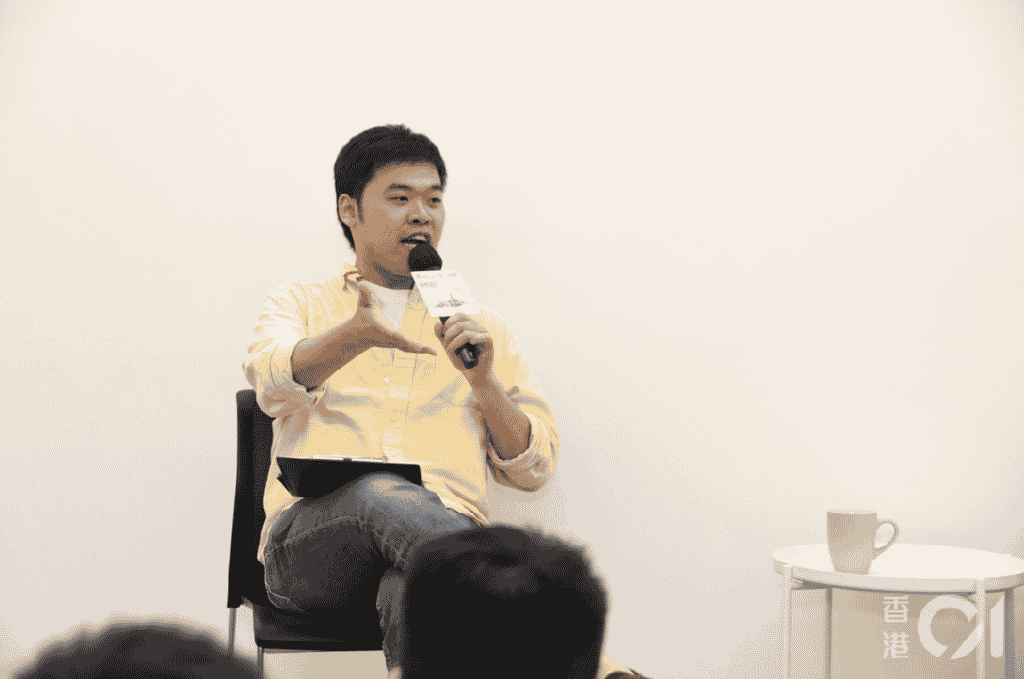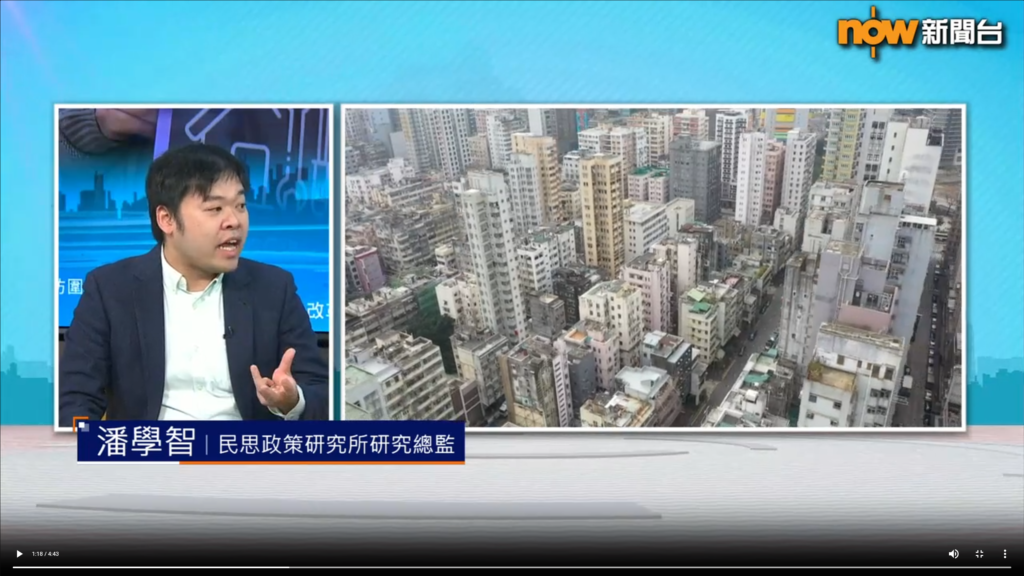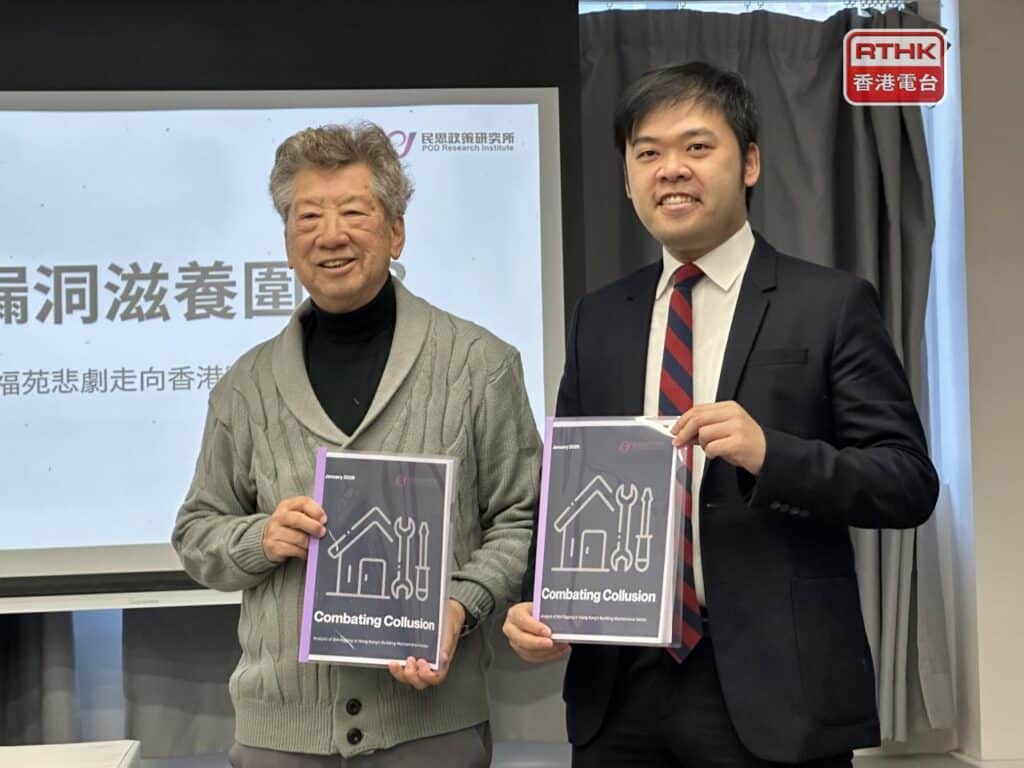The anti-extradition law movement has lasted for half a year, and citizens have become increasingly divided and antagonized, and society has suffered. Chief Executive Carrie Lam Cheng Yuet-ngor said at the end of last month that she was setting up an "independent review committee" with reference to the 2011 London riots to examine the causes of the movement and identify the social, economic and political problems involved. However, the London riots only lasted less than ten days, which is not comparable to the biggest social unrest Hong Kong is experiencing in decades. Although the government can refer to the methods of controlling riots in other regions, it cannot follow the instructions when implementing them. How can the committee prescribe the right medicine to calm public grievances, lead society out of the predicament, and regain its vitality?
As early as August this year, Legislative Councilor Leung Mei-fun of the Democratic League advocated that the government refer to the British experience and set up a committee to examine the causes of social unrest. After Carrie Lam belatedly proposed the establishment of an independent review committee, Leung Mei-fun directly criticized the government's biggest problem as "procrastination". She compared it to the British government setting up a committee to investigate five days after the riots, while the Hong Kong government would only say that it would "start as soon as possible after the situation has stabilized somewhat." This is undoubtedly "a deer that has been caught but cannot take off its horns."
Liang Meifen pointed out that if we want to review the entire movement, the causes can be divided into remote causes and proximate causes. Distal causes are deep-seated conflicts within society, which require experts and scholars to spend time and in-depth research; proximate causes are the revision of the Fugitive Offenders Ordinance. It triggered social opposition and failed to handle conflicts between police and citizens in a timely and effective manner, leading to the continued escalation of social movements.
The latter is currently the issue of greatest concern to society. For many months, different forces in the public have almost unanimously requested the government to establish an independent investigation committee to respond to public concerns about police-citizen conflicts. Many commentators warned that if the government does not directly respond to this demand, it will not be able to truly resolve public grievances, and the Independent Review Commission is not an effective channel for direct response.
What should the committee review?
Liang Meifen originally proposed to directly imitate the British government and establish a "Committee on Riots, Communities and Victims", but now she also agrees that if the committee lacks an "investigative" element, it will be difficult to convince the public. She suggested that the committee should be renamed the "Independent Investigation and Review Committee on Riots" and conduct both investigation and review at the same time, because the review process will inevitably encounter the investigation part. She believes that the review can refer to the practices of the 2011 British riots. The situation at that time was also characterized by hatred of the police, low government credibility, most of the demonstrators were young people, low credibility of the local police agencies, etc. These social backgrounds are similar to those in Hong Kong today. The committee should explore the causes of the movement from a macro perspective, and the government can refer to the aftermath and recommendations of the British committee to provide compensation and conditional amnesty to arrested demonstrators. As for investigation, she believes that in addition to the "7.21" Yuen Long attack and the "8.31" MTR Prince Edward Station incident that have attracted the most attention, various other controversial incidents need to be investigated, and the investigation must be fair and cannot be Only look at issues related to police enforcement.
Pan Xuezhi, co-convener of Democratic Thinking, believes that the scope of the review cannot be too large, otherwise it will only waste time and cause trouble. The review should focus on a few core issues. He suggested that the committee should review the police's use of force in many police-citizen conflicts. For example, the Prince Edward Station incident on August 31 involved the police's use of force in a closed space, which deserves review. He also believes that many citizens feel that the government has not understood public opinion in the past six months, which shows that there may have been problems with the government consultation system. He cited an on-site investigation report on the "Anti-Extradition Bill Amendment Demonstration" published by the Center for Communication and Public Opinion Research at the Chinese University of Hong Kong. He pointed out that most of the demonstrators were young people, who were subdivided into "heilifei", "yongwu", etc. Different categories, the government should review the mentality and motivations behind different young people's participation in sports. In addition, he also pointed out that this campaign is filled with a large amount of false information, which seriously affects public judgment. This issue also needs to be reviewed. Many countries have already legislated to regulate the dissemination of unverified information, and violators must bear criminal liability.
It is obvious that no matter how large the scope of the committee’s final review, police-citizen conflict is an important aspect that it cannot avoid. Numerous police-citizen conflicts have occurred in the past few months, and police conduct and law enforcement standards have been frequently debated. The government has always advocated that the IPCC first examine the issue. However, the IPCC's structure and powers have serious flaws and have failed to convince society. Democratic Party Legislative Council member Huang Biyun pointed out that what the public really needs is to find out the truth. She questioned that if the truth is not found, citizens' questions cannot be answered, and there will be no need to review. She also pointed out that the government has been unwilling to establish an independent investigation committee in accordance with the "Investigation Committee Ordinance". It is suspected of avoiding investigating the police's excessive force and even trying to transfer citizens' dissatisfaction with the police to welfare policies, housing and land issues, etc. She took the case of excessive lead water in public housing that she handled in 2015 as an example. An in-depth investigation into a specific scope that year could also achieve a review effect. However, if the direction of the investigation is not accurate enough, subsequent review work will not be able to quell public anger.
Limitations of the Review Committee
To be fair, the government has finally decided to prepare an independent review commission, which to a certain extent responds to society's concerns about the independent commission of inquiry. To make the commission effective, the key elements are firstly to "use the right people" and secondly to give it corresponding powers. . Regarding the second point, the current controversy in society is whether the committee should be established in accordance with Chapter 86 of the Laws of Hong Kong, namely the "Investigation Committee Ordinance", and obtain substantive powers such as summoning witnesses to testify and issuing search warrants.
On this issue, Liang Meifen believes that the committee should be given the power to summons based on the established scope of investigation, but the scope of the summons must be fair and just, and not just unilaterally target the police force. She reminded the chairperson and members of the committee to clearly understand that the committee was there to investigate the incident and not to influence the court. She added that because the IPCC does not have the power to summons, a committee needs to be established only when the IPCC investigation fails. Granting more powers will help the enthusiasm of the investigation. An improved version of the review committee may be able to satisfy the society's " Independent Commission of Inquiry".
Huang Biyun questioned that if the idea of an investigation committee was injected in the name of a review committee, it would be better to establish an independent investigation committee in accordance with the law. She pointed out that if a review committee does not have the power to summon, investigate or request information, and does not focus on investigating police decisions, and eventually turns into discussing housing and land issues, it will be the same as having no purpose, and it will even be an excuse for the government to avoid and delay. She gave examples such as the Lamma Shipwreck and excessive lead water in public housing. Independent investigation committees were established. Most of the members were judges and members of the legal profession. They summoned relevant witnesses and institutional representatives to appear in court to obtain relevant information to investigate the incidents. The witnesses Statements given before the committee will not be evidence in future criminal or civil prosecutions.
Huang Biyun emphasized that the review committee must have a legal basis. If it is not established according to existing laws and is given statutory powers of investigation and summons, it will need to be re-legislated. The process of enacting new laws cannot be completed in a short period of time. It must go through consultation, It takes a long time to draft the law, second and third readings, and review by the bill committee. Therefore, the best option is to continue to use the "Investigation Committee Ordinance".
Pan Xuezhi pointed out that in the past, independent review committees did not have the power to proactively investigate. For example, the Independent Review Committee on Franchised Bus Services in the Tai Po Highway Accident could only passively hold hearings, allowing citizens to make oral statements, submit documents, and even submit investigations to non-governmental organizations. The report requires the cooperation of many parties in disguise and relies on civil society organizations to take the initiative to carry out investigation work. He admitted frankly that he did not have high expectations for the investigative power. He also reminded that the importance of the investigative power is not only to collect evidence from the police, but also to read the medical reports of the Hospital Authority. If the government just wants to establish a government without investigative power, Review committees and public hearings can also allow citizens to express their opinions to a certain extent.
Pan Xuezhi continued that this movement has lasted for half a year and is an unprecedented large-scale event. Looking back at the past cases investigated by the committee, even if it is not a large-scale event, it will take half a year to a year to investigate. According to this logic, when will this investigation be completed? The end is far away. He suggested that the committee could publish interim reports at different stages, or subdivide it into different investigation groups, and invite overseas experts to join each group to release investigation results on different issues such as police-citizen conflicts, consultation systems, and deep-seated conflicts.
Recommendations for committee candidates and composition
After the government announced the establishment of the review committee, news immediately emerged that the government hoped to find a judge to serve as its chairman. The high social credibility of judges can make it easier for citizens to accept the fairness of the committee's handling of matters. However, the government's low popularity has become a major obstacle to its recruitment of talents. The Secretary for Labor and Welfare, Law Chi-kwong, who was part of the organizing committee, admitted in an interview with the media on Sunday (December 15) that "it is always difficult to find people to help the government, and it is even more difficult now." He revealed that it is indeed Some people refuse to join the committee, but others are willing. The government will announce the candidates in due course.
Liang Meifen bluntly said that it is understandable that even the Court of Final Appeal building has been set on fire, and people from all walks of life are worried and may not be willing to be involved. She pointed out that since the candidates decided by the committee to summon have the opportunity to affect the operation of the court, the members must be experienced people. She believes that the chairman of the IPCC, Liang Dingbang, a senior lawyer, is fair and is a good candidate.
Pan Xuezhi said that there is a social consensus that a retired judge should serve as the chairman of the committee. Since the work of the committee takes a long time, the retired judge will relatively have time to deal with it. Lawyers, former police officers and members of regulatory bodies may also be considered and may be involved in dealing with relevant macro-policing or human rights issues.
In addition, Pan Xuezhi pointed out that local scholars will be more familiar with government operations and can also be recruited. At the same time, overseas experts can be invited to provide reference opinions. He added that the independent review committee may be just the first step. Just as the public is currently dissatisfied with the IPCC, the government needs to establish a new committee and give it investigative powers; if the findings of the independent review committee dissatisfy the public in the future, another one may need to be established. Investigate organizations.
The above article was published in the 193rd issue of "Hong Kong 01" weekly newspaper (December 16, 2019) "Can the Independent Review Committee Address both the symptoms and the root causes?"



